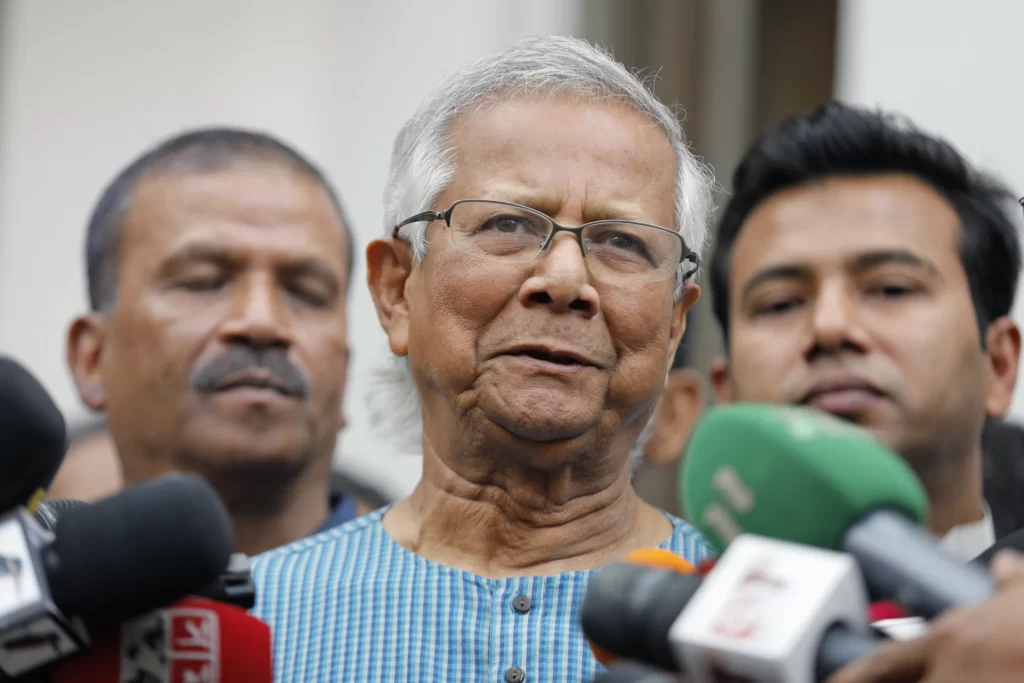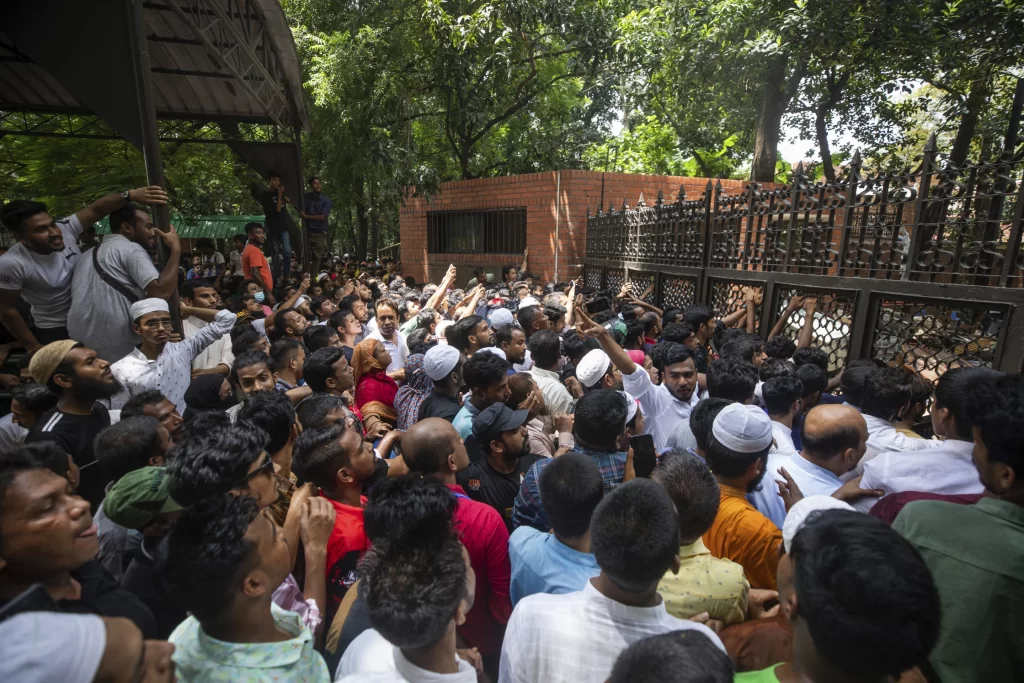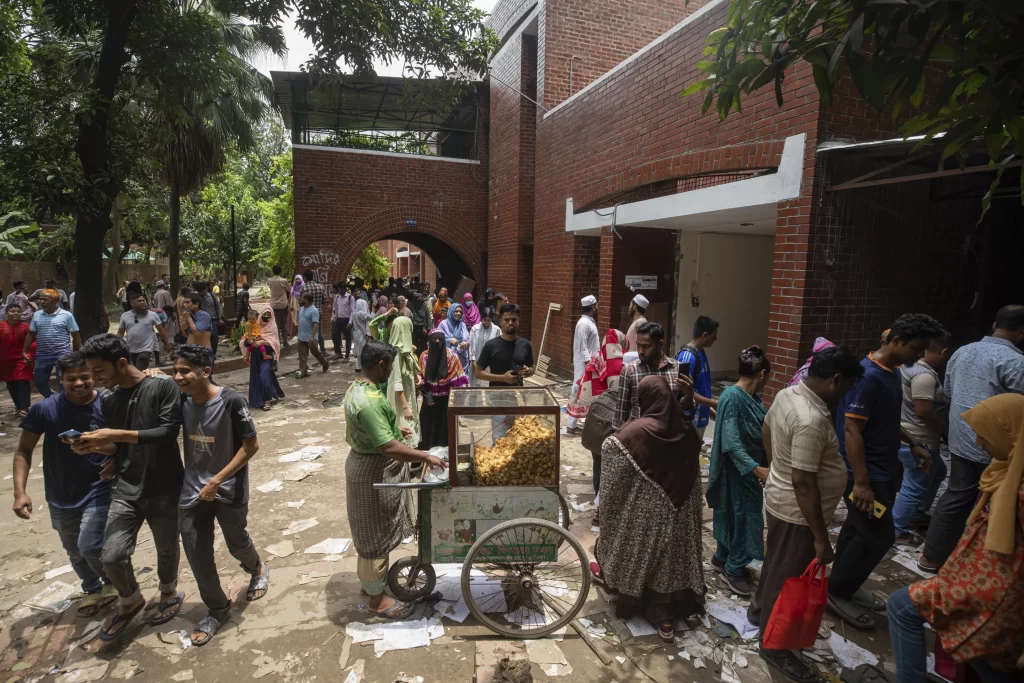Nobel laureate Muhammad Yunus has been appointed to head Bangladesh’s interim government following the resignation and departure of former Prime Minister Sheikh Hasina. This decision comes amid widespread protests and political unrest that have swept through the country, calling for change and reform in leadership.

The decision to appoint Yunus was made during a high-level meeting involving military chiefs, leaders of the student protests that were instrumental in Hasina’s ousting, prominent business figures, and civil society members. Joynal Abedin, the press secretary for Bangladesh’s figurehead President Mohammed Shahabuddin, officially announced the appointment early Wednesday in a statement to The Associated Press via telephone.
Yunus is currently in Paris, where he has been advising Olympic organizers, but is expected to return to Bangladesh shortly to assume his new role. He has been a vocal critic of Hasina’s administration and was considered a suitable candidate to lead the interim government due to his international reputation and prior experience in economic reform.

Muhammad Yunus, an economist, and banker, is renowned for his pioneering work in microfinance through the Grameen Bank, which he founded in 1983. He was awarded the Nobel Peace Prize in 2006 for his efforts to create economic opportunities for impoverished communities by providing small loans to entrepreneurs who lack access to traditional banking services. Yunus’s work has lifted millions out of poverty and has been hailed as a model for economic development globally.
The formation of the interim government is expected to be completed soon, with discussions ongoing among political parties, military leaders, and other key stakeholders. The interim government will be tasked with overseeing the country until new elections can be held, ensuring stability, and addressing the demands of protesters who have called for comprehensive political reforms.

President Mohammed Shahabuddin, who dissolved parliament on Tuesday to facilitate the transition, emphasized the need for a peaceful and transparent process to restore public confidence in the government. The interim administration aims to create an environment conducive to free and fair elections, which are anticipated to take place in the coming months.
In a related move, President Shahabuddin ordered the release of Khaleda Zia, a prominent opposition leader and longtime rival of Sheikh Hasina. Zia had been under house arrest since her conviction on corruption charges by Hasina’s government in 2018. Her release is seen as a gesture of goodwill and a step toward political reconciliation, aimed at uniting various factions within the country.

The appointment of Yunus has been met with cautious optimism by many citizens, who view it as a positive step towards restoring democracy and addressing the grievances that have fueled weeks of protests. However, some protestors have expressed concerns about the potential for military influence in the interim government, stressing the importance of maintaining civilian leadership.

The streets of Dhaka, which had previously been sites of intense protests and violence, have remained calm following the announcement. The public’s focus now shifts to the interim government’s actions and its ability to deliver on promises of reform and stability.

Yunus’s leadership is expected to bring a renewed focus on economic development and social justice, aligning with his long-standing advocacy for poverty alleviation and empowerment of marginalized communities. His appointment marks a pivotal moment for Bangladesh as the nation seeks to rebuild trust in its political institutions and navigate the challenges ahead.
Source: apnews.com



